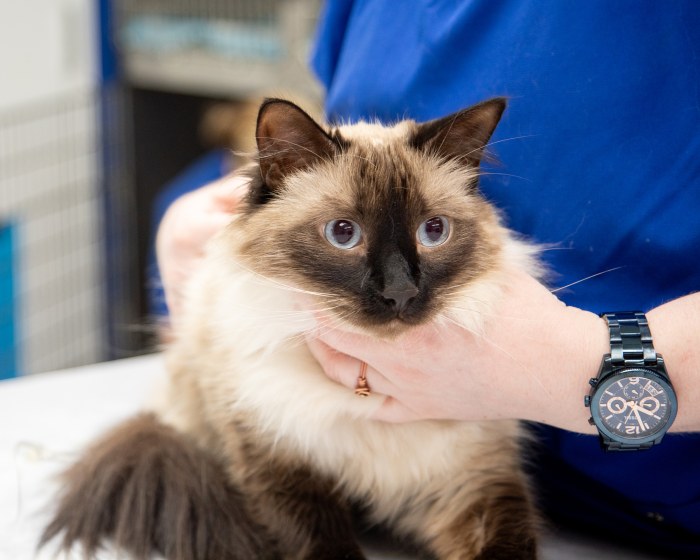Neurological Disorders in Pets - OFF TEMPORARILY
Rehabilitation for Neurological Disorders
Our Chester County vets design customized rehabilitation treatment programs for neurological disorders to help restore functional movement for your pet.
Neurological Disorders
It's always difficult to watch a beloved pet experience a neurological disorder.
Rehabilitation is essential when it comes to properly managing an acute disorder or chronic neurological disease.
We strive to restore your pet's normal functional movement with custom designed treatment programs to help increase muscle strength, improve core stability and stance, and more.
Neurofacilitation techniques can be combined with at-home exercises to help facilitate recovery and improve quality of life.

What to Expect During Treatment for Neurological Disorders
Custom treatment programs are designed to meet the unique needs of pets with neurological disorders. They can address pain or weakness, help promote normal movement patterns and strengthen motor control. Balance boards, physioballs and other tools are often used during exercises. At-home mobility devices may also be recommended.
Rehab Options for Neurological Disorders
At Our Clinic
At the Rehabilitation Center, our highly trained veterinarians design custom treatment programs to meet the unique needs of pets with neurological disorders and address pain or weakness. These programs have a number of rehabilitative benefits for your pet, and can help him or her:
- Increase muscle strength
- Improve core stability and stance
- Improve balance and coordination
A certified canine practitioner or therapist may introduce neurofacilitation techniques, which will be incorporated in your pet's exercise program.
At Home
Completing at-home exercises will be critical to your pet's recovery process. Our rehabilitation team will design a home program just for you, and suggest mobility aids.
Neurological Disorders & Rehab FAQs
Read our most frequently asked questions about neurological disorders and rehabilitation.
- What are some examples of neurological disorders? How quickly do they progress?
While some conditions are acute (with abrupt onset), others can progress quite quickly and need immediate medical attention. Some may be challenging to spot and progress gradually over an extended period of time.
Examples of acute onset neurological pathology that would need immediate medical attention include spinal trauma and abrupt hernia of an intervertebral disk. Degenerative myelopathy (progressive paralysis of the spinal cord) and lumbrosacral disk disease (lower back pain) both progress more slowly.
- Why is rehabilitation for neurological disorders important?
Neurological disorders can have a profoundly negative impact on your pet's ability to function, move independently and enjoy quality of life. They can be just as unpredictable in animals as they are in people.
With rehabilitation, we may be able to rehabilitate a de-conditioned state, help restore your pet's normal functional movement and effectively address any pain or weakness they may be experiencing. Increasing muscle strength, improving core stability and practicing balance and coordination techniques can help reduce pain and discomfort, and enjoy a happier, longer life.
- What do neurofacilitation techniques do and how can they help?
Neurofacilitation techniques can facilitate or inhibit a specific motor or sensory response, and promote normal movement patterns.
For pets with postural capability or the ability to stand or walk on land, techniques such as swimming in a deep water pool can help them improve and strengthen motor control.
- What types of tools can be used during rehabilitation exercises at your clinic?
We often use tools such as balance boards, physioballs, and assisted support harnesses during our supervised exercises as part of our treatment programs at the Rehabilitation Center, to achieve our goals.
- What are some mobility aids my pet may be able to use at home?
Along with an at-home exercise program, our rehabilitation team will suggest options for mobility aids to assist in recovery, such as booties, carts and slings that may significantly improve your pet's mobility, recovery and overall happiness.
